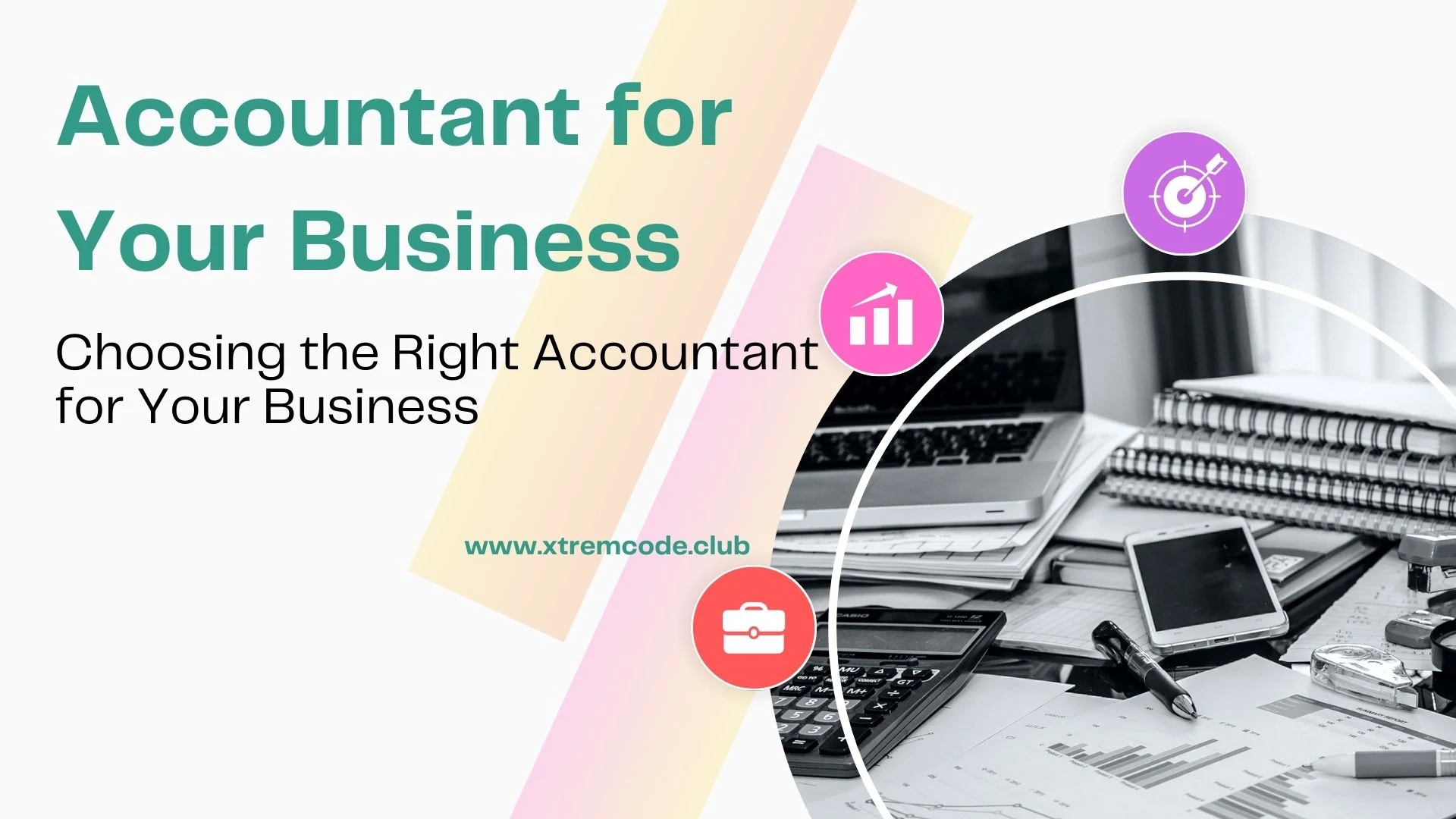Financial management is crucial for small businesses, helping owners track cash flow, detect fraud, and prepare for audits, ensuring a clear picture of business finances and decision-making . Accounting serves as a cornerstone for business consulting, enabling strategic business planning and providing insights into cash flow management and tax preparation .
Selecting the right small business accountants involves understanding the benefits they bring, from offering tailored business accounting and bookkeeping services to assisting with income statements, payroll, and navigating the complexities of IRS audits . Accountants for small business play a vital role in helping businesses optimize their financial processes and strategic planning, ensuring they meet legal requirements and are prepared for growth .
Why Small Businesses Need an Accountant
Comprehensive Services
Accountants provide a wide array of services crucial for small businesses, including financial planning, tax advice, business consulting, and maintaining financial records. They set up efficient bookkeeping and accounting systems, generate audit-ready financial statements, and offer business-specific recommendations .
Expertise and Compliance
Small business accountants are experts in tax laws and financial regulations, ensuring businesses comply and avoid potential legal issues. Their expertise helps in reducing errors in financial records and provides crucial financial advice and planning.
Cost-Effectiveness
Outsourcing accounting tasks not only offers access to expert services and advanced tools but also proves cost-effective. It allows scalability and helps business owners focus on core activities, enhancing productivity and growth.
Time and Resource Management
By delegating financial tasks to accountants, small business owners can save significant time, allowing them to concentrate on business operations and customer service. Accountants handle complex financial transactions efficiently, freeing up resources for other critical business functions.
Strategic Financial Planning
Accountants play a pivotal role in shaping financial strategies. They provide detailed financial forecasts, assist in solidifying business plans, and offer insights on cash flow management, which are essential for informed decision-making and long-term business sustainability.
Security and Accuracy
Ensuring the security of financial data is paramount, and accountants stay updated with the latest data protection standards. They maintain accurate records, which are vital for financial decision-making and safeguarding sensitive information.
Growth and Adaptability
As businesses grow, the complexity of financial needs increases. Accountants help manage this complexity, ensuring smooth financial operations during tax seasons and major business transitions, which supports sustainable business growth.
Choosing the Right Accountant for Your Business
Understand Your Needs
Before selecting an accountant, clearly identify the specific services your business requires, such as bookkeeping, financial statement preparation, tax filing, or strategic financial advice.
Research and Reviews
It is crucial to seek referrals from peers and to check online reviews on platforms like LinkedIn, Yelp, and Facebook. This helps in comparing the qualifications and client experiences of potential accountants.
Qualifications and Experience
Ensure the accountant has relevant credentials and experience in your industry. Look for certifications such as CPA, CMA, CGMA, or EA, which are indicators of proficiency and expertise.
Initial Meetings
Arrange meetings with potential accountants to discuss their services, experience, and how they can assist in achieving your business goals. It's important to assess their compatibility with your business during these interactions.
Growth and Support
Choose an accountant who not only manages current financial tasks but also provides strategic advice for future growth. They should offer solutions that align with your long-term business objectives.
Additional Resources
Utilize resources like the American Institute of Certified Public Accountants (AICPA) and the National Association of Personal Financial Advisors to find qualified professionals.
Certification and Trust
Verify that the accountant is certified in your state and ask for their Preparer Tax Identification Number (PTIN) to ensure they are authorized to handle tax-related services.
Personal Interaction
Meeting with an accountant in person can help establish a trustful and transparent relationship, which is fundamental for handling sensitive financial information.
The Cost vs. Benefit Analysis of Hiring an Accountant
Initial Investment and Recurring Costs
Hiring an accountant involves an initial financial investment, including expenses for new software and time spent interacting with the accountant. The costs can vary, with software solutions ranging from basic to elaborate programs, impacting the overall expense. Additionally, accountants typically charge hourly rates from $100 to $300, or they might offer a monthly fee structure that ranges from $1,000 to $10,000, depending on the complexity and the services provided. Annually, this expense typically falls within $500 to $5,000.
Operational Costs
On top of direct payment to the accountant, businesses must consider additional operational costs. These include benefits, paid time off, IT support, overhead, and potentially overtime, which can cumulatively add an average of $13,000 per employee per year. For outsourced accountants, these costs are often encapsulated within their fees, which can range from $40 per hour for basic bookkeeping to $400 per hour for comprehensive CFO services .
Cost-Benefit Analysis Methodology
To effectively analyze the financial feasibility of hiring an accountant, businesses should list and estimate all associated costs and benefits. Assigning a dollar value to each and subtracting the total costs from total benefits will provide a clear financial picture. It's advisable to include a time frame for this analysis, such as over a three-year period, to account for long-term financial planning.
Professional Services Costs
Specific costs related to professional services include tax preparation, which can range from $220 for a basic Form 1040 to $800 for a more complex Form 1120. These costs vary based on the accountant's expertise and the specific needs of the business, such as the complexity of financial statements or the intricacy of tax filing required.
Maximizing the Value of Your Accountant
Streamlining Operations with Technology
To maximize the value of your accountant, integrating cloud-based accounting software and tools like payroll processing apps and automated expense management systems is crucial. These technologies not only streamline operations but also ensure continuous updates to keep your business at the forefront of industry standards.
Enhancing Communication and Customization
Regular interactions with your accountant are essential. Through various communication channels, your accountant can better understand your evolving needs, provide updates on tax regulations, and offer strategic financial advice. This proactive approach focuses on adding value beyond mere transactional relationships.
Flexible Pricing Structures
Offering flexible pricing models such as flat monthly retainers or project-based fees can significantly enhance the perceived value of accounting services. Providing discounts for volume or long-term commitments can also play a crucial role in building client loyalty and satisfaction.
Professional Development of Accounting Staff
Investing in the continuous professional development of accounting staff through training programs and certifications not only enhances their skills but also ensures high-quality service delivery. This focus on staff advancement is also critical for retaining top talent and preparing them for higher-level responsibilities.
Leveraging Professional Networks
Participation in industry associations and networks can broaden professional relationships and increase the credibility of your accounting services. Active involvement in these circles through events and conferences also opens up avenues for powerful referrals and partnerships.
Clarifying Roles and Access to Information
It is vital to clearly define the tasks and responsibilities expected from your accountant. Ensuring they have access to all necessary financial documents and information enables them to deliver accurate and timely services, which are crucial for effective financial management and decision-making.
Regular Consultations and Strategic Advice
Do not hesitate to seek your accountant’s input on crucial financial decisions. Regular consultations can help align financial strategies with business goals, ensuring proactive management of finances and identification of opportunities or potential issues.
Technology Integration for Efficiency
Adopting cloud-based solutions not only facilitates smoother operations but also enhances the accessibility and efficiency of financial management, allowing your accountant to deliver timely and effective services.
Conclusion
Throughout this article, we have explored the pivotal role that small business accountants play in the prosperity and sustainability of small enterprises. We highlighted the comprehensive services they offer, from financial planning and compliance to strategic advice for growth. By dissecting the benefits and costs associated with hiring these professionals, it's clear that accountants are not just a luxury but a necessity for businesses aiming for efficiency, compliance, and strategic advancement. Their expertise not only safeguards businesses from potential financial pitfalls but also propels them towards achieving their long-term goals through meticulous planning and informed decision-making.
Selecting the right accountant is a critical decision that requires thorough understanding and consideration of your business's unique needs and aspirations. By integrating technological solutions and fostering a strong, transparent relationship with an accountant, businesses can maximize the value these professionals bring to the table. Ultimately, the collaboration between a small business and its accountant is fundamental in navigating the complexities of financial management, ensuring both statutory compliance and the attainment of strategic business objectives. It's an investment in the business's future, promising not just growth and sustainability but also a clearer path towards achieving lasting success in the competitive market landscape.
FAQs
How does an accountant assist a small business owner? An accountant aids small business owners by conducting monthly preparations and analyses of financial statements, enabling managers to make well-informed decisions with current data. Additionally, they manage payroll responsibilities and assist with the estimation of tax payments throughout the year.
In what ways does accounting contribute to the success of a small business? Accounting plays a crucial role in the success of a small business by ensuring the correct amount of tax is paid, identifying tax savings, enhancing cash flow, assisting in business setup, reducing the owner's workload, and managing bookkeeping and financial reporting. Accountants also help navigate regulations and can support funding efforts for business growth.
What are three methods by which accountants support business prosperity? Accountants bolster business success by clarifying whether a business is profitable, aiding in budget creation, providing financial data analysis for better decision-making, managing payroll, preparing taxes, conducting financial reporting,advising on product pricing, and ensuring compliance with laws and regulations.
What value does an accountant bring to a business? Accountants enhance a business's value through financial planning, budgetary control, conducting financial health assessments, implementing controls and procedures, analyzing profitability, managing risks, and performing due diligence. These activities contribute to more effective management and strategic planning.



